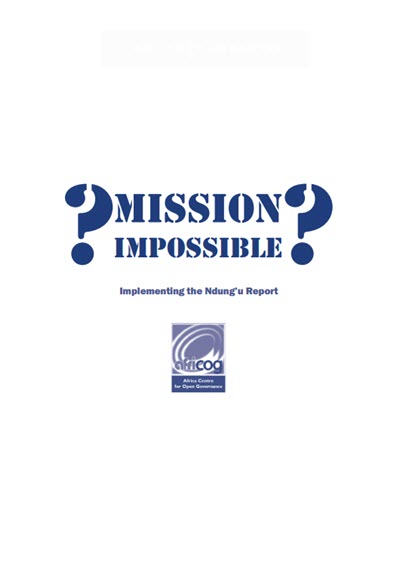Nearly five years after the release of the Report of the Commission of Inquiry into the Illegal/Irregular Allocation of Public Land (the Ndung’u Commission), in December 2004, its recommendations remain largely unimplemented and corrupt dealings in public land continue.
Recent revelations of officials in the Ministry of Lands colluding to sell public land to Kenyans in the diaspora and constant politicking on the Mau Forest crisis where many politically-connected individuals are reported to have been allocated land illegally, tell of continuing indifference to the deep ramifications of corruption and bad governance in the management of public land. In the aftermath of the post-election crisis, the issue of land has gained increased urgency.
Land and discontent over its distribution and ownership, was much cited as a driving factor behind the post-2007 election violence. This was reinforced by the National Accord and Reconciliation Agreement that emerged from the Kofi Annan-led mediation process in February 2008, which identified land reform as a priority under Agenda Item IV. This is exacerbated by decades of misuse of land as a source of patronage and illegitimate enrichment in Kenya, which touches on another key long-term issue under the National Accord, that of transparency and accountability.
Centralisation of power over land in the President has resulted in politicisation of the process of accessing as well as owning land. By making sound proposals for reforming land management and outlining viable legal, institutional, and policy strategies by which to surmount the expected implementation challenges, the Ndung’u Report provides a possible way out of a crucial aspect of Kenya’s land dilemma
